How much do you know about the weights of the fruits and vegetables you eat? The average weight of different fruits and veggies can vary a lot, so knowing these weights can be very useful. You can use the average weight of fruit and vegetables to plan a recipe, figure out nutrition, or compare prices at the grocery store.
Throughout this article, we’ll cover the average weight of fruits and vegetables from A to Z.
Average Weights of Fruits (A to Z)

Here is a table representing the average weights of fruits from A to Z:
| Fruit | Average Weight (grams) |
| Apple | 150 |
| Banana | 120 |
| Cherry | 5 |
| Durian | 1500 |
| Elderberry | 0.3 |
| Fig | 50 |
| Grape | 5 |
| Honeydew | 1700 |
| Jackfruit | 500 |
| Kiwi | 100 |
| Lemon | 70 |
| Mango | 300 |
| Nectarine | 150 |
| Orange | 150 |
| Pineapple | 1000 |
| Quince | 200 |
| Raspberry | 1 |
| Strawberry | 12 |
| Tomato | 100 |
| Ugli fruit | 200 |
| Vanilla | 0.4 |
| Watermelon | 7000 |
| Xigua melon | 5000 |
| Yellow passionfruit | 80 |
Average Weight of Berry Fruits

Cranberry:
Cranberries are small, round berries known for their tart taste. On average, a single cranberry weighs around 1 gram. They are commonly used in juices, sauces, and baked goods.
Related: How Much Is 1 Gram Weigh?
Blueberry:
Blueberries are small, round berries that are usually blue or purple. The weight of blueberry can range from 0.5 to 2 grams, with an average weight of about 0.7 grams. Blueberries are popular in various culinary applications, such as pies, smoothies, and breakfast dishes.
Grape:
Grapes come in various colors, including green, red, and purple. They are typically small, round fruits that grow in clusters. The weight of an individual grape can vary depending on the variety, but on average, a grape weighs around 5 grams. Grapes are commonly eaten fresh or used to make wine, juices, and dried raisins.
Raspberry:
Raspberries are small, delicate berries that have a sweet and slightly tart flavor. The weight of a raspberry ranges from 1 to 5 grams, with an average weight of about 2 grams. Raspberries are often enjoyed fresh, used in desserts, or incorporated into jams and sauces.
Blackberry:
Blackberries are larger than cranberries and blueberries, and they have a distinct dark purple or black color. The weight of a Blackberry typically ranges from 2 to 7 grams, with an average weight of around 4 grams. Blackberries are often enjoyed fresh, in desserts, or used to make jams and jellies.
Average Weight of Tropical Fruits
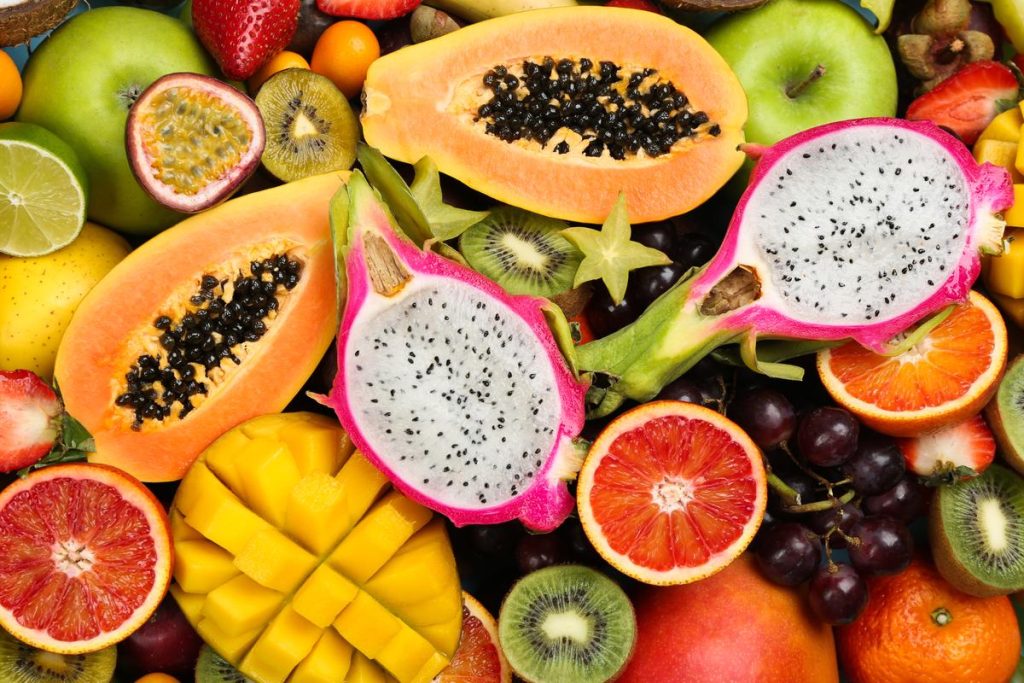
Here are the average weights of some commonly consumed tropical fruits:
Dragon Fruit:
Dragon fruits are known for their vibrant colors and unique appearance. They typically weigh between 150 to 600 grams, with an average weight of around 300 grams. The weight can vary depending on the size and variety of the fruit.
Avocado:
Avocados are creamy fruits with a smooth texture. The weight of an avocado can vary depending on its size and variety. On average, a medium-sized avocado weighs around 200 grams, but it can range from 100 to 300 grams or more.
Bananas:
Bananas are one of the most popular tropical fruits, known for their natural sweetness and convenient packaging. The weight of a banana can vary depending on its size and maturity. On average, a medium-sized banana weighs around 120 grams, but it can range from 80 to 150 grams.
Coconut:
Coconuts are large, round fruits with a hard outer shell. The weight of a mature coconut can range from 1 to 2.5 kilograms, with an average weight of around 1.5 kilograms. Coconuts contain both water and flesh, with the weight distribution varying depending on the maturity of the fruit.
Kiwi:
Kiwis are small, fuzzy fruits with a tangy and sweet taste. The weight of a kiwi fruit typically ranges from 50 to 100 grams, with an average weight of around 70 grams. Kiwis are often consumed fresh or added to fruit salads and desserts.
Related: Things That Weigh 100 Grams
Mango:
Mangos are juicy fruits with a rich, tropical flavor. The weight of mango can vary depending on its size and variety. On average, a medium-sized mango weighs around 200 to 300 grams, but they can range from 150 to 600 grams or more.
Average Weight of Citrus Fruits

Here are the average weights of two commonly consumed citrus fruits:
Orange:
Oranges are round citrus fruits known for their bright orange color and refreshing taste. Amedium-sized orange weighs around 150 to 200 grams.
Lemon:
Lemons are tangy citrus fruits commonly used for their juice and zest in cooking and beverages. A medium-sized lemon weighs around 60 to 80 grams, but it can range from 40 to 100 grams or more.
Average Weights of Vegetables (A to Z)
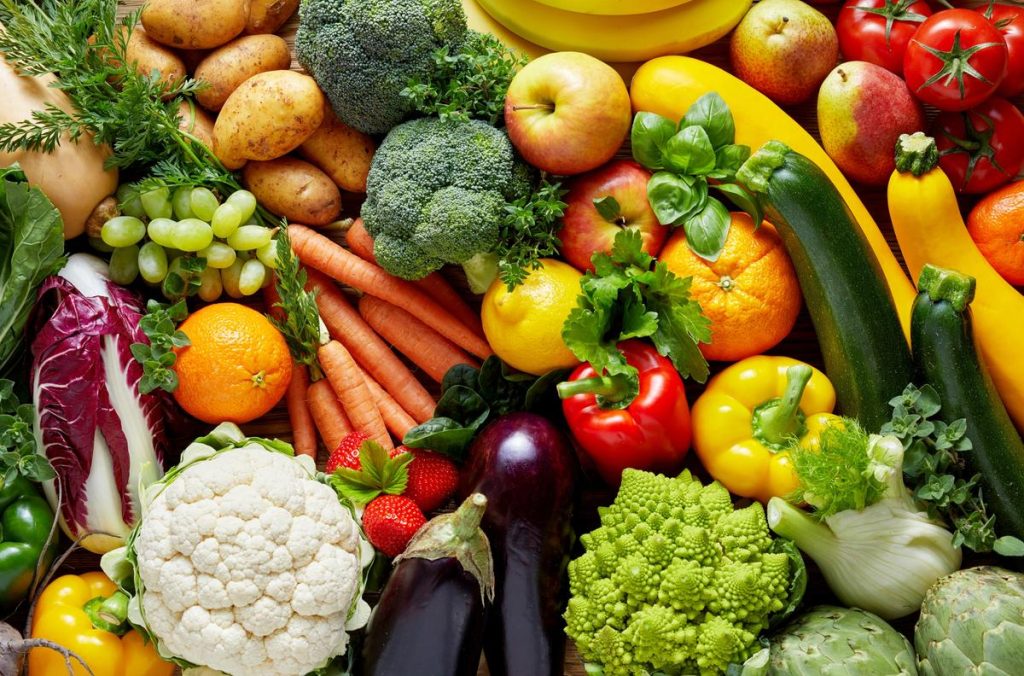
Here’s an alphabetical list of various vegetables along with their average weights:
| Vegetable | Average Weight (grams) |
| Artichoke | 150 |
| Asparagus | 80 |
| Beetroot | 150 |
| Broccoli | 150 |
| Brussels sprouts | 20 |
| Cabbage | 100 |
| Carrot | 80 |
| Cauliflower | 200 |
| Celery | 40 |
| Cucumber | 150 |
| Eggplant | 200 |
| Green beans | 100 |
| Kale | 50 |
| Leek | 100 |
| Lettuce | 50 |
| Mushroom | 20 |
| Onion | 100 |
| Peas | 80 |
| Potato | 150 |
| Pumpkin | 500 |
| Radish | 30 |
| Spinach | 30 |
| Squash | 250 |
| Sweet potato | 150 |
| Tomato | 100 |
| Turnip | 150 |
| Zucchini | 150 |
Average Weight of All Leafy Green Vegetables
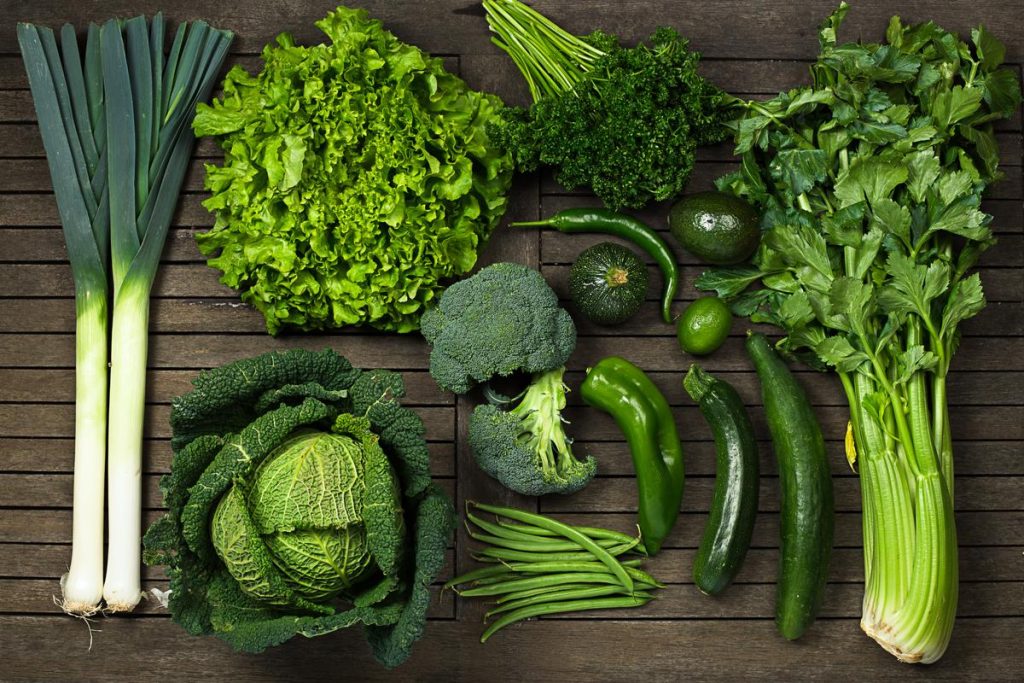
Brussels Sprouts:
Brussels sprouts are small, round vegetables that belong to the cabbage family. The weight of a Brussels sprout can vary depending on its size, but on average, a single Brussels sprout weighs around 20 to 30 grams.
Lettuce:
Lettuce is a leafy green vegetable that comes in various types such as romaine, iceberg, and leaf lettuce. The weight of lettuce leaves can vary depending on the size and variety. On average, a single leaf of lettuce weighs around 15 to 30 grams.
Cabbage:
Cabbage is a cruciferous vegetable with dense, leafy layers. The weight of a cabbage head can vary depending on its size and variety. On average, a medium-sized cabbage head weighs around 1 to 2 kilograms.
Related: Things That Are Measured In Grams And Kilograms
Kale:
Kale is a nutrient-rich leafy green vegetable with curly or flat leaves. The weight of kale leaves can vary depending on their size and maturity. On average, a single kale leaf weighs around 20 to 30 grams.
Spinach:
Spinach is a tender leafy green vegetable with a mild flavor. The weight of spinach leaves can vary depending on their size and maturity. On average, a single spinach leaf weighs around 2 to 4 grams.
Average Weight of All Root Vegetables
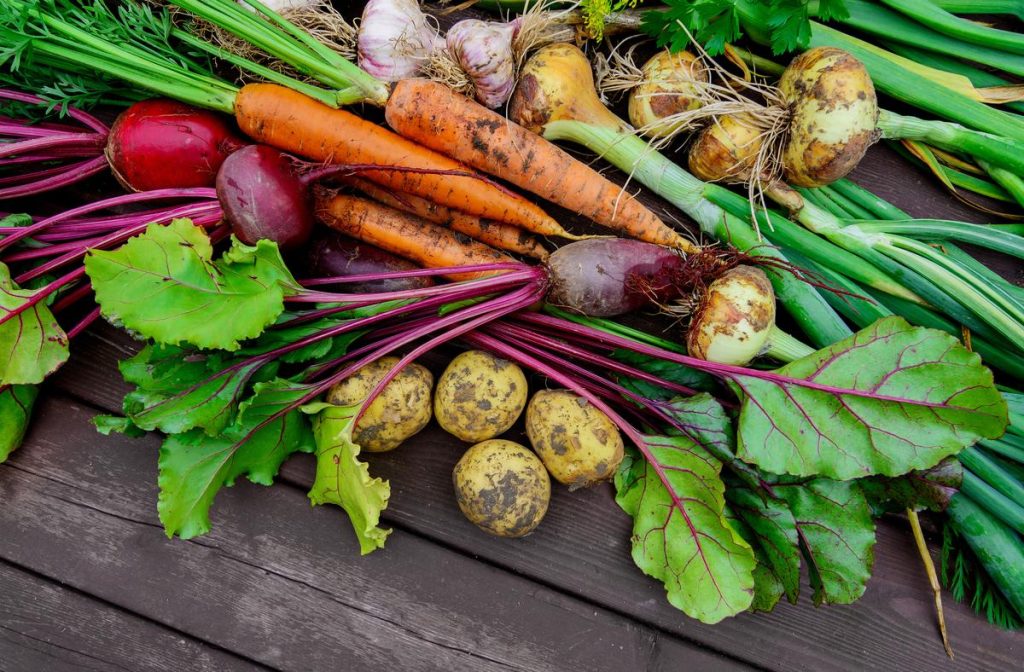
Here are the average weights of some commonly consumed root vegetables:
Carrot:
Carrots are orange root vegetables with a sweet and crunchy taste. The weight of a carrot can vary depending on its size and shape. On average, a medium-sized carrot weighs around 60 to 80 grams, but they can range from 30 or more.
Potato:
Potatoes are starchy root vegetables that come in various sizes and shapes. On average, a medium-sized potato weighs around 60 grams, but it can range from 100 grams or more.
Radish:
Radishes are crisp root vegetables that come in various colors and shapes. The weight of radish can vary depending on its size and variety. On average, a radish weighs around 10 to 30 grams.
Turnip:
Turnips are root vegetables with white or purple skin and a mild, slightly sweet flavor. On average, a medium-sized turnip weighs around 150 to 200 grams.
Check Also: 11 Common Things That Weigh 200 Grams
Average Weight of Bulb Vegetables
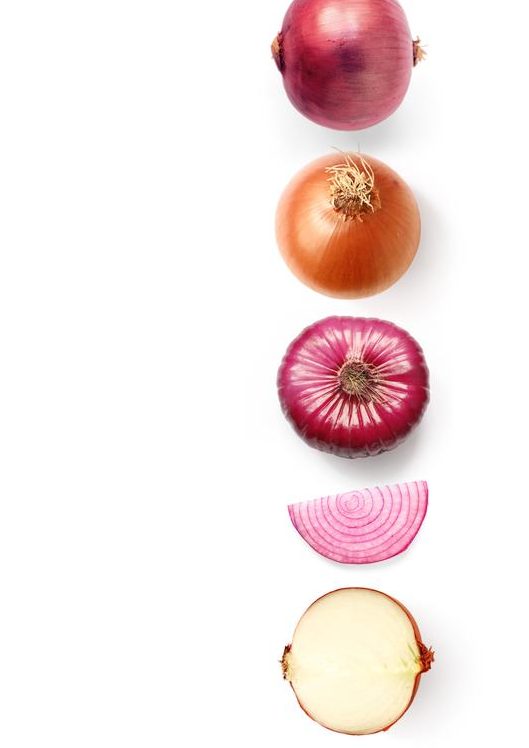
Garlic:
Garlic is a bulbous vegetable composed of multiple cloves encased in a papery skin. On average, a medium-sized garlic bulb weighs around 30 to 60 grams.
Leek:
Leeks are leafy vegetables with long, cylindrical bulbs and green, onion-like tops. On average, a medium-sized leek weighs around 150 to 250 grams.
Onion:
Onions are widely used bulbous vegetables with various colors and flavors. The weight of an onion bulb can vary depending on its size and variety. On average, a medium-sized onion bulb weighs around 100 grams.
Average Weight of Stem Vegetables
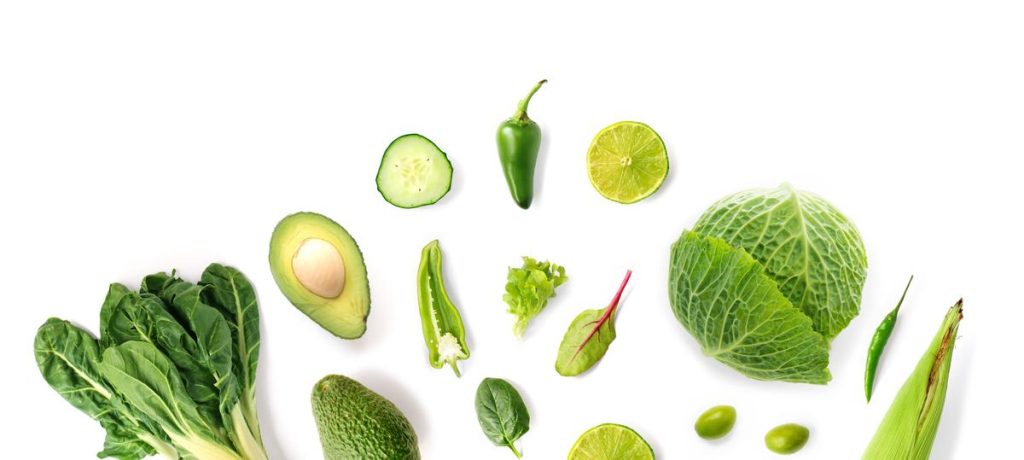
Stem vegetables are those where the edible part of the plant is the stem or stalk. Examples of stem vegetables include
Asparagus:
Asparagus is a vegetable with long, slender green or white stalks. On average, a medium-sized asparagus spear weighs around 40 grams.
Celery:
Celery is a crisp vegetable with long, fibrous stalks. The weight of a celery stalk can vary depending on its size and thickness. On average, a medium-sized celery stalk weighs around 40 to 60 grams.
Rhubarb:
Rhubarb is a vegetable with long, thick, and tart-tasting stalks. On average, a medium-sized rhubarb stalk weighs around 50 to 100 grams.
Why Does the Weight of Fruits and Vegetables Matter?
The weight of fruits and vegetables matters for several reasons:
Nutritional content:
The weight of fruits and vegetables is directly linked to their nutritional content. Nutrients like vitamins, minerals, fiber, and antioxidants are present in varying amounts in different fruits and vegetables. Understanding the weight allows you to estimate the nutrient intake and ensure you’re meeting your dietary needs.
Recipe measurements:
When following recipes, the weight of fruits and vegetables is often specified to ensure accurate measurements. Recipes that call for a specific weight of ingredients help maintain consistency and ensure the desired taste and texture of the final dish.
Purchase planning:
When buying fruits and vegetables, knowing their average weight can help you plan your purchases more efficiently. For example, if you need a specific amount of produce for a recipe or meal preparation, knowing the average weight allows you to estimate how much you should buy.
Storage and transportation:
The weight of fruits and vegetables is relevant for storage and transportation purposes. Understanding the weight helps determine the appropriate packaging, storage conditions, and transportation logistics to prevent damage or spoilage.
Commercial transactions:
In commercial settings, the weight of fruits and vegetables is often used for pricing and sales transactions. It ensures fair trade and accurate pricing based on the weight of the produce being sold.
FAQs
What fruit weighs 2 pounds?
A fruit that weighs around 2 pounds is the pineapple. Pineapples can vary in size, but on average, they can weigh between 2 to 5 pounds.
How much does a 1 2 cup of vegetables weigh?
The weight of a 1/2 cup of vegetables can vary depending on the type of vegetable. However, as a general estimate, 1/2 cup of vegetables typically weigh around 85-115 grams.
How many grams are 10 servings of fruits and vegetables?
The weight of 10 servings of fruits and vegetables would depend on the serving size of each serving. Without specific serving size information, it is difficult to provide an accurate weight in grams. However, if we assume a standard serving size of approximately 100 grams, then 10 servings would amount to approximately 1000 grams (or 1 kilogram).
How many grams of fruits and vegetables per day?
The recommended daily intake of fruits and vegetables varies depending on factors such as age, sex, and level of physical activity. However, a common guideline is to consume at least 400 grams (or 5 servings) of fruits and vegetables per day.